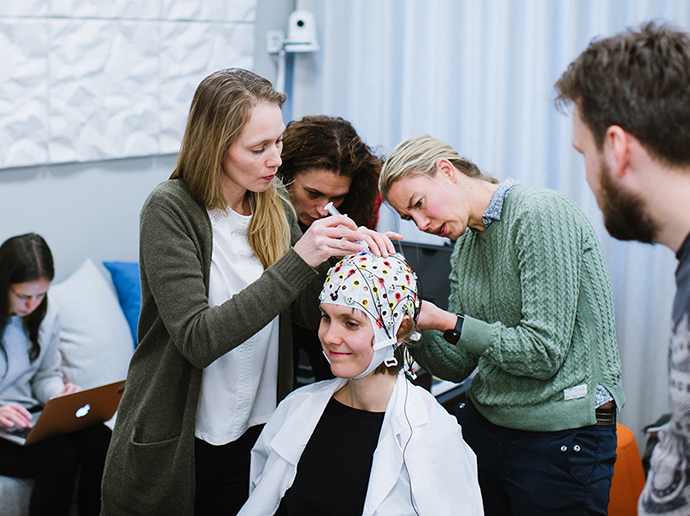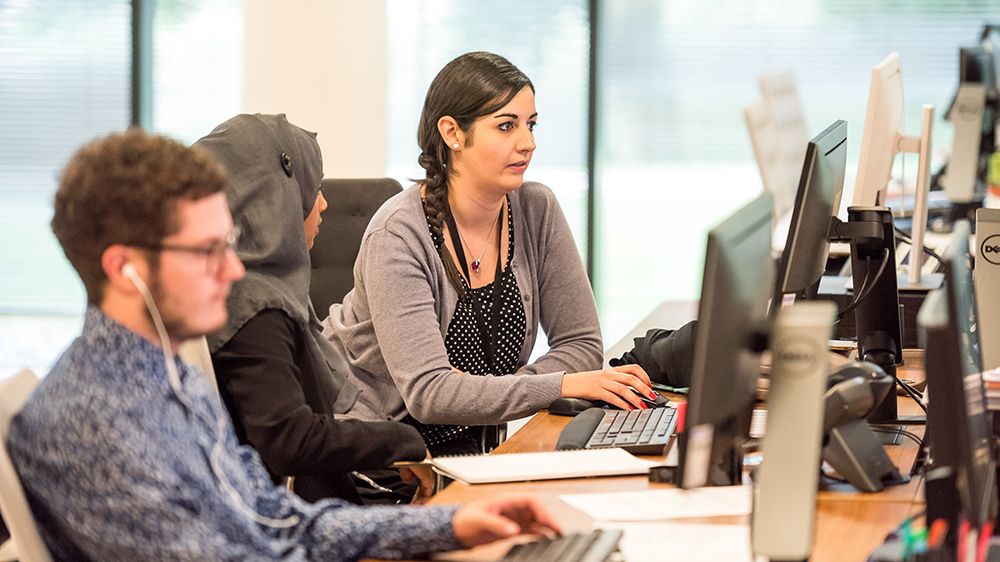Norwegian workplaces, schools, and media landscapes have become increasingly multilingual in recent years. This is a challenge as well as a resource, according to researchers at the Centre for Multilingualism in Society across the Lifespan (Multiling) at the University of Oslo.
The centre has been facilitating cutting-edge research on multilingualism since 2013 and is currently one of the world’s leading research environments in this field.
This expertise is now set to be further integrated into teaching and supervision at the Department of Linguistics and Scandinavian Studies, where MultiLing is hosted. Among the initiatives to bring research and teaching closer together is Norway’s first master’s programme in multilingualism.
“This is expertise that our society needs, both at an individual and a societal level. Daycare facilities, schools and families all need to learn more about multilingualism. The same applies to the public sector and international organisations,” says Pia Lane, Professor at MultiLing.
Seeking partners to welcome student interns
According to Lane, there are still many misunderstandings and myths surrounding multilingualism.
– More knowledge can help individuals, public authorities, health professionals and organisations make sound, knowledge-based choices.
The new programme is now seeking partners: All students will be given the opportunity to complete an internship in which they will work on solving challenges linked to multilingualism. This could involve working in schools, cultural centres, tourist offices, health services, government institutions or businesses in Norway or abroad.
The centre is also looking to expand its collaboration with universities in Norway and abroad. Opportunities may include student exchanges, visiting lecturers and research placements for students.
An interdisciplinary approach to multilingualism
The MA in Multilingualism brings together fields of research that have traditionally been separate, namely sociolinguistics and psycholinguistics.
– Sociolinguistic approaches examine and assess language policy, learning in multilingual classrooms and communication in institutions such as health services. Psycholinguistics examines how we learn languages, how language changes throughout life and how our brains process languages, Pia Lane explains.
– Often, both of these approaches are needed in order to investigate the use, acquisition and development of language in multilingual individuals, she adds.
Students choose a specialisation
The new master’s programme will also be interdisciplinary. According to Course Coordinator and Associate Professor Haley De Korne, students will be able to choose whether to focus their studies more towards sociolinguistics or more towards psycholinguistics.

The research conducted in the laboratory covers everything from multilingual acquisition among children to the identification of speech disorders among multilingual individuals. Research is also being conducted into possible treatments for multilingual individuals diagnosed with dementia and Alzheimer’s disease.
Contribute to important societal challenges
– Students will also be able to focus on communication in social settings, and to undertake sociolinguistic fieldwork, says De Korne.
– There are few master’s programmes that attempt to link innovative research on multilingualism with current societal challenges. The fact that the Department of Linguistics and Scandinavian Studies has chosen to establish a dedicated academic area and a master’s programme in multilingualism is both bold and forward-looking.
Who can apply?
The first cohort will start in the autumn of 2022, and students can submit their applications via the Norwegian Universities and Colleges Admission Service. The programme is open to applicants from all countries and multiple disciplines, including students with a background in . linguistics, sociology, anthropology, education, media and/or psychology.
The language of instruction will be English, but students will be encouraged to use other languages in their research and internships. Students will have a choice between English and/ or Scandinavian languages for course assignments.
– Our faculty are already an international and interdisciplinary group; we believe that recruiting students from a mixture of disciplines and cultural backgrounds will make the programme even more exciting, says Haley De Korne.
Are you considering applying? Further information about the programme.
Does your organisation need placement students? Please contact Course Coordinator Haley De Korne.
